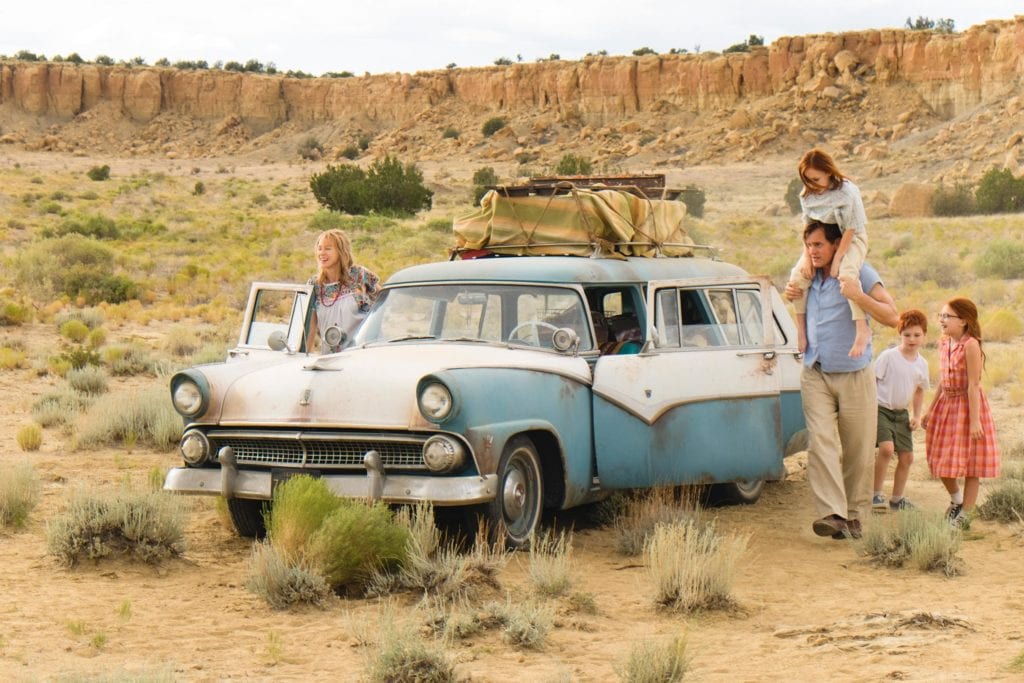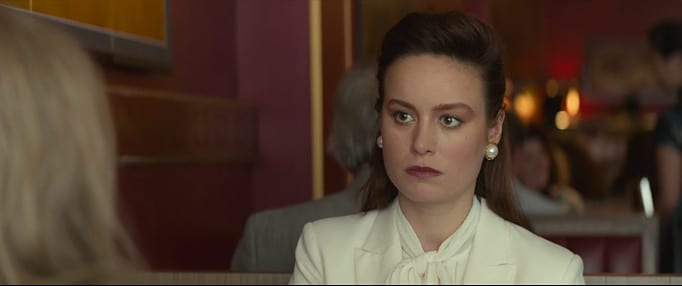Movie Reviews
‘The Glass Castle,’ Characters Throw Stones In Contrived Oscar Pretender
The pages of Jeannette Walls’ memoir The Glass Castle documented her upbringing in a disruptive household with an artistic mother and alcoholic father. Jeannette and her siblings were uprooted many a time as father Rex lost jobs or made attempts to evade debt collectors. Walls’ memoir attracted worldwide acclaim and seemed like the perfect vehicle for a Hollywood movie. Here you have a period coming-of-age drama of 1960s/1970s America meshing with a young woman trying her best to disassociate herself with her past. Whether you call them carpetbaggers, squatters, or hermits, Jeannette was raised in a household that was far from normal.
The Glass Castle should be a metaphor for the life we wish but fail to achieve because of impediments along the way. If that was the intent, as opposed to Rex’s grand idea of constructing a home made out of glass, filmmaker Destin Daniel Cretton missed the mark, big time. What movie-goers are treated to is an artificial narrative that intends to manipulate in the worst possible way. A scene near the end is so egregious that any good will is snuffed out.
Regardless of that scene’s inclusion, the film as a whole is flawed. Its use of flashbacks, which disorients moving between past and present time, become pointless. The technique may have been of Cretton’s own creation, as opposed to the actual memoir, to make its leading star Brie Larson (who plays Jeannette Walls as an adult) have a showcase role. The advertising plays up the acting accolades of the principal stars with key words Academy Award Winner and Academy Award Nominee, clearly done to give the impression of an Oscar-caliber film. It’s all for show, sad to say. This is a contrived Oscar Bait production.
Woody Harrelson has the plum role as Jeannette’s abusive father, Rex; his performance recalls such cankerous dads as Lt. Col. “Bull” Meechum (Robert DuVall in The Great Santini) and Dwight Hansen (Robert De Niro in This Boy’s Life). A former military man, Rex raises his ire towards the rest of the household, though the violence seems softened to ensure a PG-13 rating. What is shown is still troubling, then again the film is told from Jeannette’s perspective, who may downplay the abuse as she is conflicted about her father.
Rex is a real bastard but Cretton does his very best to not have the audience hate him outright. Rex is ambitious but fails to capitalize on account of his alcohol dependency. Moments of fatherly love are present but to a lesser degree than his menace.
When we first meet Jeanette we are in New York City, 1989. She is working as a gossip columnist for a newspaper publication. One night, when taking a taxi home, she sees her mother, Rose Mary (Naomi Watts), digging through trash looking for food scraps. Rex is belligerent in the middle of the road yelling at the driver. Jeanette tells the driver to keep going, and she doesn’t look back. Then we travel to twenty years prior as the family makes a life of it moving from one town to another as Rex is unable to hold down a job because of his love for libations.
The family finally settles in rural West Virginia at a ramshackle house that looks to be held together by dust and cobwebs. This is where they will construct their dream home. Days stretch to weeks and months and years and the children grow older. The dream home is still just a dream. Rex makes an attempt to be a fit parent. He quits drinking and gets a job earning a respectable wage. Then the demons come back and the monster returns. It is then that the children make the promise to work together in order to save money, graduate, and get away from their father.
The flashback scenes are the most captivating, especially those where we see Jeanette as a youngster. Woody Harrelson barreling his way through scenes is also a bright spot (if we can safely label an abusive dad a bright spot). The scenes in New York, however, feel cold and distant. By now Jeannette Walls is so far removed from her family that she carries on a double life, making up lies about her childhood. Naomi Watts is once again a victim of committing to roles where there is no room for growth. She does the best she can with the material offered.
The Glass Castle will draw comparisons to 2016’s Captain Fantastic. Both involve fathers raising kids through peculiar means. That’s where the comparisons stop. Castle plays more like Captain Miserable. Trying to emotionally manipulate the audience is a major stumbling block. As is the manner in which the film is structured. Jeannette Walls’ memoir may be a fascinating read. Regrettably, this coming-of-age film is too artificial and conflicted in how it wants us to react to the characters. Such a shame that Destin Daniel Cretton has to follow the brilliant Short Term 12 (which also stars Larson) to make a film that so wants to be Oscar caliber but is just a pretender.
Director: Destin Daniel Cretton
Writer: Destin Daniel Cretton and Andrew Lanham (Based on the memoir The Glass Castle by Jeanette Walls)
Cast: Brie Larson, Woody Harrelson, Naomi Watts, Max Greenfield, Ella Anderson, Chandler Head
Rating: PG-13 (for mature thematic content involving family dysfunction, and for some language and smoking)
Running Time: 127 minutes

